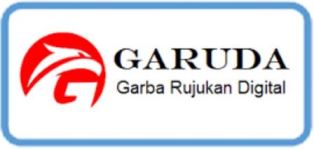KONTRIBUSI MOTIVASI MEMASUKI DUNIA KERJA DAN PENGALAMAN PRAKERIN TERHADAP HASIL UKK
 ), Efrizon Efrizon(2),
), Efrizon Efrizon(2), (1) Universitas Negeri Padang
(2) Universitas Negeri Padang
 Corresponding Author
Corresponding Author
DOI : https://doi.org/10.24036/voteteknika.v7i3.105349
Full Text:
 Language : id
Language : id
Abstract
This researchwas conducted to find out how much motivation contribution entered the world of work and industrial work practice experience (PRAKERIN) on the results of the Expertise Competency Test (UKK) from Electronics Engineering Students in 2019 at SMK Negeri 1 West Sumatra. The population of this research is as many as 58 students of class XII majoring in electronics engineering (audio video engineering expertise program and mechatronic engineering program) SMK Negeri 1 West Sumatra 2018/2019 academic year. Sampling in this research was carried out by simple random sampling technique, so as to get as many as 37 students as the sample. The questionnaire shared and filled out by these students is a method used by the writer to collect data. Multiple regression analysis is the main analysis technique used in this research. From this research, it was found that (1) Motivation to enter the workforce and industry work experience experience together contributed 30.14% to the results of the expertise competency test, (2) Motivation to enter the workforce contributed 15.05% to expertise competency test results, (3) Industrial work practice experience contributes 14.67% to the results of expertise competency test. So it can be concluded that Motivation entering the workforce and the industrial work practice experience (PRAKERIN) contribute to the results of the Expertise Competency Test (UKK) of Electronics Engineering students in 2019 at SMK Negeri 1 West Sumatra.
Keywords:Motivation Entering the Workforce, Industrial Work Practice Experience, Expertise Competency Test
KONTRIBUSI MOTIVASI MEMASUKI DUNIA KERJA DAN PENGALAMAN PRAKERIN TERHADAP HASIL UKK
References
Departemen Pendidikan Nasional. 2003.Undang-Undang Nomor 20 Tahun 2003 tentang Sistem Pendidikan Nasional. Jakarta: Depdiknas.
Badan Pusat Statistik. 2018. “Laporan Bulanan Data Sosial Ekonomi Desember 2018”, https://www.bps.go.id/publication/2018/12/05//laporan-bulanan-data-sosial-ekonomi-desember-2018.html, diakses pada 13 Desember 2018 pukul 18.07.
Direktorat Pembinaan SMK. 2018. “Uji Kompetensi Keahlian Tahun Pelajaran 2018/2019”,https://psmk.kemdikbud.go.id/konten/2720/uji-kompetensi-keahlian-tahun-pelajaran-20182019, diakses pada 31 Januari 2019 pukul 17.25.
Republik Indonesia. 2015. Peraturan Pemerintah No. 13 Tahun 2015 tentang Perubahan atas Peraturan Pemerintah No.19 tahun 2005 tentang Standar Nasional Pendidikan Sistem Pendidikan Nasional. Jakarta: Sekretariat Negara.
Kementerian Pendidikan dan Kebudayaan. 2016. Permendikbud No. 23 tahun 2016 Pasal 1 Ayat (6) tentang Kriteria Ketuntasan Minimal (KKM). Jakarta: Depdikbud.
Suharsimi Arikunto. 2010. Prosedur Penelitian Pendidikan. Jakarta: PT Rineka
Sugiyono. 2013. Metode Penelitian Kuantitatif Kualitatif dan R&D. Bandung: Alfabeta
Sudjana, Nana. 2009. Penilaian Hasil Belajar Mengajar. Bandung: Remaja Rosdakarya
Agus Fitriyanto. 2006. Ketidakpastian Memasuki Dunia Kerja Karena Pendidikan. Jakarta: Dineka Cipta.
Dikmenjur. 2008. Kurikulum SMK. Jakarta: Dikmenjur.
E. Mulyasa, 2006. Kurikulum Tingkat Satuan Pendidikan. Bandung: Remaja Rosdakarya.
Riduwan& Akdon. 2012. Rumus dan Data dalam Aplikasi Statistika. Bandung: Alfabeta.
Ali Muhidin dkk. 2011. Analisis Korelasi, Regresi, dan Jalur dalam Penelitian. Bandung: CV. Pustaka Setia.
 Article Metrics
Article Metrics
 Abstract Views : 366 times
Abstract Views : 366 times
 PDF Downloaded : 86 times
PDF Downloaded : 86 times
Refbacks
- There are currently no refbacks.



.png)







